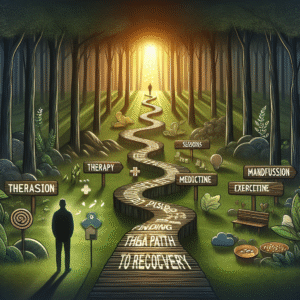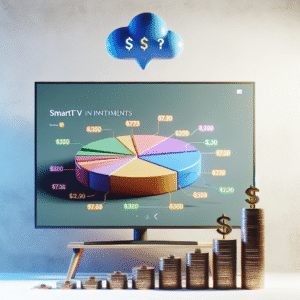We live in a world that celebrates busyness. Juggling emails during meetings, answering texts while cooking, switching between tabs while working—this has become the norm. Multitasking is often seen as a badge of honor, a sign of efficiency and adaptability in a fast-paced world. But is it really the productivity superpower it’s made out to be?
The science says no. In fact, research consistently shows that multitasking doesn’t just reduce productivity—it actually impairs our ability to think deeply, focus, and perform at our best. If you’re serious about doing meaningful work, achieving your goals, or simply improving your daily peace of mind, it’s time to rethink multitasking.
The Myth of Multitasking
At its core, multitasking feels productive. You might believe you’re handling multiple tasks at once—listening to a podcast while replying to emails or watching a webinar while writing a report. But in reality, the human brain isn’t wired to perform more than one complex task at a time.
When neuroscientists study what the brain is doing during multitasking, they find something interesting: you’re not actually doing two things at once. Instead, you’re switching rapidly from one task to another. Each switch demands a mental cost—an interruption in focus and a delay in processing.
Psychologists call this the “switch cost.” According to a study by the American Psychological Association, even brief mental blocks created by shifting between tasks can cost as much as 40% of someone’s productive time. That’s nearly half your workday lost to mental fumbling.
The Prefrontal Cortex and Attention
Much of our ability to focus and make decisions resides in a region of the brain known as the prefrontal cortex. This part of the brain helps you prioritize tasks, manage your impulses, and stay organized. But it’s a limited resource.
When you multitask, your prefrontal cortex is forced to toggle between different mental “rules.” For example, the rules for composing an email are different from the rules for participating in a Zoom call. Constant switching makes this area work harder than it should, leading to quicker fatigue and more errors.
Dr. Earl Miller, a neuroscientist at MIT, explains it like this: “The brain is very good at deluding itself. People can’t multitask very well, and when they say they can, they’re deluding themselves.” His lab has shown that we are not actually parallel processors; instead, we’re just extremely quick at toggling back and forth—and this toggling comes at a price.
The Productivity Paradox
So, if multitasking hurts focus and leads to more mistakes, why do we keep doing it?
Part of the answer lies in how multitasking makes us feel. Jumping between tasks can give the illusion of progress. Every time you check something off a to-do list—even if it’s minor—your brain releases a small hit of dopamine, the feel-good chemical associated with reward.
But over time, this pursuit of constant mini-rewards fragments your attention span. You train your brain to seek novelty and distraction rather than deep, sustained work. This is the paradox: the more we try to do at once, the less we actually accomplish.
A 2009 study from Stanford University found that chronic multitaskers—people who routinely try to do many things at once—performed worse on tests of attention and memory than people who focused on one thing at a time. They were more easily distracted, had poorer recall, and found it harder to organize their thoughts.
Focus Is a Muscle
The good news is that focus, like any skill, can be trained. But doing so means reversing some of the habits that multitasking has encouraged.
Think of your attention like a muscle. If you constantly stretch it in multiple directions, it becomes weak and scattered. But if you give it the chance to concentrate and engage deeply, it grows stronger and more resilient over time.
This is the idea behind “deep work,” a term popularized by computer science professor and author Cal Newport. Deep work refers to the ability to focus without distraction on cognitively demanding tasks. It’s the kind of focus that leads to breakthroughs, creative problem-solving, and high-quality output.
To enter a state of deep work, Newport argues, we must ruthlessly eliminate distractions—turn off notifications, close unnecessary tabs, carve out dedicated time blocks, and let ourselves get bored before we start working. In short, we have to give up multitasking.
The Cost of Constant Connectivity
Technology, for all its advantages, has made multitasking more tempting than ever. Every ding, buzz, and banner notification offers an opportunity to switch our attention. But this constant connectivity has a cost.
A 2015 study published in the journal Computers in Human Behavior found that just the presence of a smartphone—even if it’s turned off—can reduce cognitive capacity. When your phone is nearby, part of your brain is actively working to not think about it. That drains mental energy you could be using elsewhere.
Another study, from the University of London, found that people who multitasked during cognitive tasks experienced IQ score drops similar to what you’d expect from someone who stayed up all night. In the long run, multitasking doesn’t just make us less productive—it may actually make us dumber.
Reclaiming Your Focus
So what can you do to reclaim your attention and break free from the multitasking trap?
- Start small. Set a timer for 25 minutes and commit to working on just one thing—that’s the essence of the Pomodoro Technique. Gradually increase the time as your focus improves.
- Batch similar tasks together. Instead of checking your email 20 times a day, try handling all emails in a few short bursts. Turn off unnecessary notifications. Leave your phone in another room if possible.
- Be mindful of your mental state. If you find yourself constantly switching between tasks or refreshing your social media feed out of habit, pause and ask why. Often, we multitask not because it helps but because it distracts us from discomfort or boredom.
- And most importantly, remind yourself that real productivity isn’t about doing more—it’s about doing what matters well.
Multitasking promises speed, efficiency, and control. But in truth, it scatters your attention, weakens your focus, and ultimately slows you down. The science is clear: our brains work best when they’re allowed to concentrate on one thing at a time.
In a world that constantly demands our attention, choosing to focus is a quiet act of rebellion—and one of the most powerful tools for reclaiming your time, your mind, and your life.






